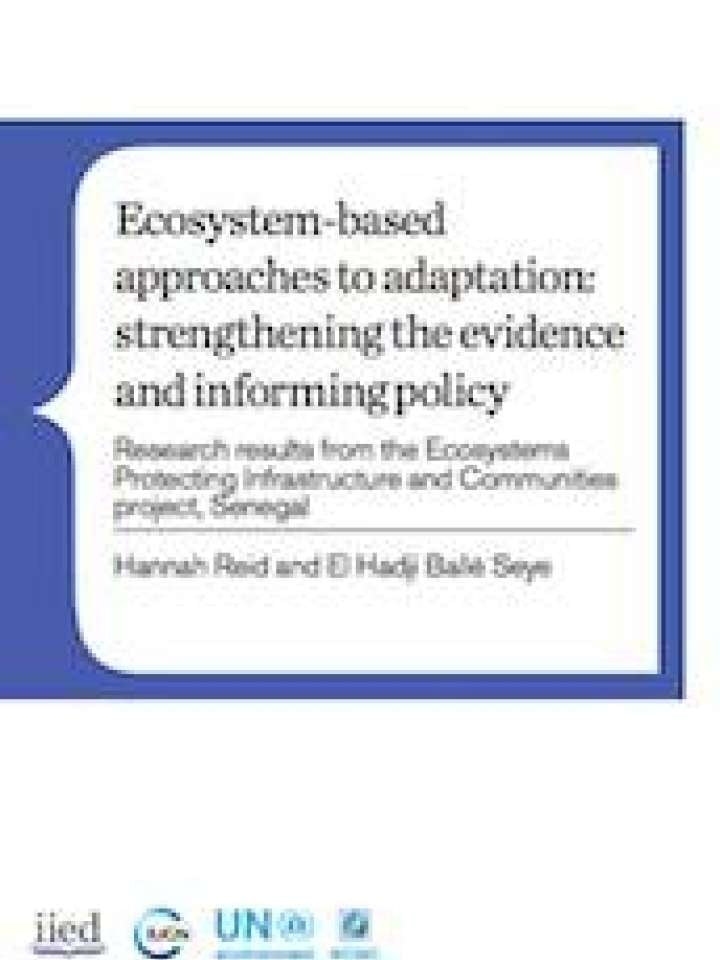Ecosystem-based approaches to adaptation: Strengthening the evidence and informing policy. Research results from the Ecosystems Protecting Infrastructure and Communities project, Senegal
Ecosystem-based adaptation (EbA) is the use of biodiversity and ecosystem services as part of an overall strategy to help people to adapt to the adverse effects of climate change and promote sustainable development.
This report presents the results of using our Framework for Assessing EbA Effectiveness at the Ecosystems Protecting Infrastructure and Communities project, Senegal. The findings will be combined with those from 12 other sites in 11 other countries to help show climate change policymakers when and why EbA is effective.
It concludes that the project activities have improved the resilience of local communities, improved their adaptive capacity and reduced their vulnerability, with the benefits being felt by a range of social groups and a number of social co-benefits also emerging. People in the project area are now self-reliant and are able to implement assisted natural regeneration techniques and build their own bunds to keep land salinisation in check, for example. The use of participatory processes had clearly supported implementation of the EbA project, and because of knowledge transfer, future generations will enjoy the benefits of improved ecosystem services.
The initiative had also improved ecosystem resilience and maintained, restored or improved ecosystem services provision at the project site and further afield. However, capacity levels and policy and institutional support levels were not considered sufficient for the EbA initiative to be sustainable over the long term, and although perceptions of the cost-effectiveness of the initiative were positive, local community understanding of whether the initiative is financially and economically effective remains poor.
Explore further
